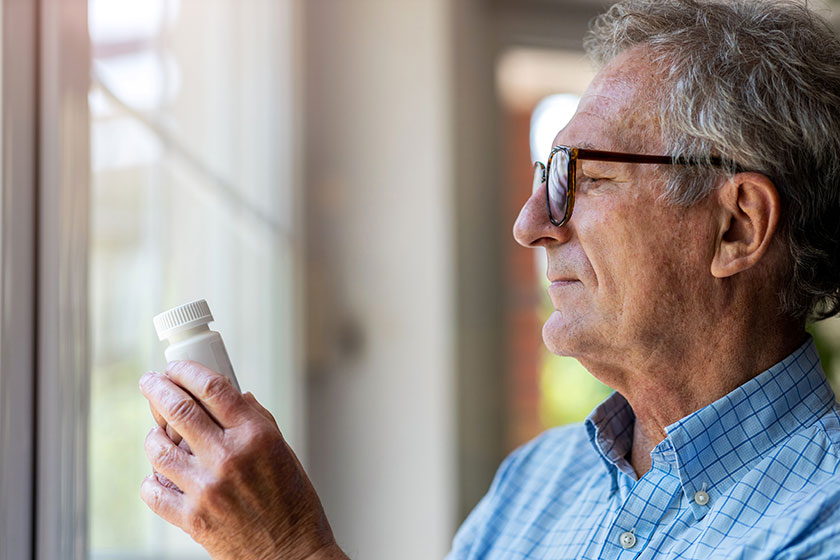Vitamin B12 is an essential nutrient responsible for several vital functions in the body. As we age, our body’s ability to absorb and utilize certain nutrients may diminish, making it essential to understand the right Vit B12 dosage for senior years. Especially for those residing in a retirement community, ensuring the correct dosage becomes a part of the holistic approach to health and well-being.
The Significance of Vitamin B12 in Human Health
Cobalamin, more commonly recognized as Vitamin B12, is a crucial water-soluble nutrient essential for numerous physiological functions. The importance of this vitamin in promoting good health and well-being is immense. At the top of its many functions, Vitamin B12 is instrumental in the formation of red blood cells. An adequate and consistent level of this vitamin is vital to avert conditions like megaloblastic anemia, where red blood cells grow larger but are less functional, resulting in symptoms such as tiredness and weakness.
Additionally, there’s a significant interplay between Vitamin B12 and Vitamin B9 or folate. Together, they synthesize S-adenosylmethionine, a molecule that has a hand in both mood stabilization and bolstering the immune system. It’s noteworthy to mention that a shortfall in B12 levels can sometimes be a precursor to mood shifts, feelings of depression, and a decline in cognitive abilities.
Another indispensable function of Vitamin B12 is its contribution to neural health. It plays a part in forming the myelin sheath, which serves as a protective barrier for our nerve fibers. A deficiency in this vital nutrient might compromise this protective layer, potentially leading to nerve-related issues. Therefore, it becomes increasingly crucial to monitor and maintain appropriate Vitamin B12 levels, especially during one’s advanced years.
How Aging Affects B12 Absorption
As we grow older, our body undergoes several physiological changes that can impact nutrient absorption. One of the most notable changes concerning vit B12 is the decline in stomach acid production. Stomach acid is crucial for separating B12 from the proteins in food, a necessary step before the vitamin can be absorbed in the small intestine.
Additionally, some older adults develop a condition known as atrophic gastritis. This condition inflames the stomach, leading to a reduction in the stomach’s ability to produce the intrinsic factor – a protein necessary for vitamin B12 absorption. Without adequate intrinsic factor, even if one consumes enough B12 through their diet, the body might not absorb it efficiently.
Moreover, certain medications commonly prescribed to the elderly, like proton pump inhibitors and antacid drugs, can reduce stomach acid, further hampering B12 absorption. Given these challenges, many residents in retirement communities are at an elevated risk of vit B12 deficiency, even if their dietary intake seems adequate. This highlights the importance of not only ensuring the right vit B12 dosage but also considering potential absorption barriers unique to the elderly.
Recommended Vit B12 Dosage for Elderly
For most adults, the recommended daily intake is about 2.4 micrograms. However, those over 50 might benefit from higher doses or supplements due to decreased absorption capabilities. It’s always advised to consult a healthcare professional to tailor the dosage to individual needs, ensuring that residents maintain optimal levels.
Sources of Vitamin B12
While supplements can be a reliable source, B12 is also naturally found in various foods. Meat, fish, poultry, and dairy products are excellent sources. Some fortified cereals and plant-based milk alternatives also contain B12. Retirement communities often incorporate these sources into their meal plans, ensuring residents receive a balanced diet rich in essential nutrients.
Signs of B12 Deficiency
Awareness is crucial. Symptoms of a B12 deficiency can range from fatigue, weakness, constipation, and anemia to more severe neurological symptoms like numbness, difficulty walking, mood disturbances, and memory loss. If any resident in a retirement community showcases these symptoms, the team must act swiftly, adjusting the vit B12 dosage as required.
Safety and Considerations
While B12 is water-soluble and any excess is generally excreted through urine, it’s essential to be cautious. Extremely high doses, especially if taken without a clear deficiency, can lead to complications. Regular check-ups and blood tests can help monitor B12 levels, ensuring that residents receive just the right amount for their health needs.
Maintaining the right vit B12 dosage is crucial for the overall health and well-being of elderly individuals. While aging brings about various challenges, with proactive steps, awareness, and a dedicated team in a retirement community, residents can lead a vibrant and fulfilling life. Ensuring the right intake of essential nutrients like vitamin B12 is a foundational step in that direction. Always consult with healthcare professionals to tailor any vitamin or supplement intake to individual health requirements.







